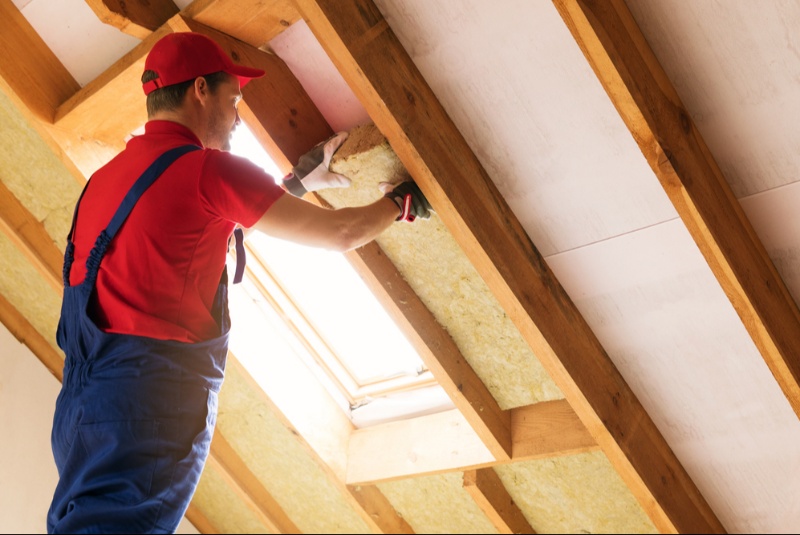Proper home insulation is crucial for maintaining a comfortable indoor environment, reducing energy bills, and increasing the overall energy efficiency of your home. With various insulation products available, selecting the right one can be overwhelming. This guide offers smart buying tips for home insulation products, helping you make informed decisions that suit your specific needs and budget.
Understanding the Importance of Insulation
Insulation plays a vital role in regulating your home’s temperature by preventing heat loss in winter and keeping it cool in summer. Effective insulation reduces the reliance on heating and cooling systems, leading to lower energy bills and a smaller carbon footprint. Additionally, insulation can improve indoor air quality and reduce noise pollution. Understanding the importance of insulation underscores the need to invest in high-quality products that offer long-term benefits.
Assessing Your Home’s Insulation Needs
Before purchasing insulation, assess your home’s specific needs. Identify areas that require insulation, such as attics, walls, floors, and basements. Conduct an energy audit to determine existing insulation levels and identify gaps or areas with inadequate insulation. Understanding your home’s unique requirements helps you choose the right type and amount of insulation, ensuring optimal thermal performance and energy efficiency.
Different Types of Insulation
There are several types of insulation, each suited to different applications and budgets. The most common types include fiberglass, foam, cellulose, and reflective insulation. Fiberglass insulation, available in batts or rolls, is affordable and easy to install. Foam insulation, including spray foam and rigid foam, offers superior thermal resistance and is ideal for sealing gaps and cracks. Cellulose insulation, made from recycled paper, provides excellent thermal performance and is environmentally friendly. Reflective insulation, or radiant barriers, reflects heat away from the home and is particularly effective in hot climates. Understanding the pros and cons of each type helps you select the best insulation for your needs.
Evaluating R-Value
The R-value measures the insulation’s thermal resistance, indicating its effectiveness in preventing heat transfer. The higher the R-value, the better the insulation’s performance. The required R-value depends on your climate, the part of the home being insulated, and local building codes. For example, attics typically require higher R-values than walls or floors. Evaluating the R-value ensures you choose insulation that meets your thermal performance needs and complies with regulations, maximizing energy efficiency.

Considering Installation Methods
Different insulation products have varying installation methods. Some, like fiberglass batts, can be installed as a DIY project, while others, such as spray foam, require professional installation. Consider your skill level, the complexity of the project, and whether you’re comfortable handling the installation yourself. Professional installation may have higher upfront costs but ensures proper application and maximizes the insulation’s effectiveness. Choosing the right installation method ensures a successful and efficient insulation project.
Assessing Material Safety and Environmental Impact
Safety and environmental impact are important factors when selecting insulation products. Look for insulation materials that are non-toxic, free of harmful chemicals, and have low VOC emissions. Consider products made from recycled or sustainable materials, such as cellulose or certain types of foam. Additionally, check for certifications, such as GREENGUARD or ENERGY STAR, which indicate that the product meets safety and environmental standards. Assessing these factors ensures a healthier indoor environment and supports eco-friendly practices.
Calculating Costs and Budget
Insulation costs vary based on the type of material, R-value, and installation method. Determine your budget and consider the long-term savings from reduced energy bills when evaluating costs. While some insulation products may have higher upfront costs, they can offer significant savings over time through improved energy efficiency. Obtain multiple quotes from contractors if opting for professional installation to ensure you get the best value for your money. Calculating costs and setting a budget helps you make a cost-effective choice that fits your financial constraints.
Checking Local Building Codes and Incentives
Local building codes often dictate minimum insulation requirements for new constructions and renovations. Ensure the insulation products you choose comply with these regulations. Additionally, check for local, state, or federal incentives and rebates for energy-efficient home improvements. Programs like ENERGY STAR or local utility company rebates can provide financial assistance or tax credits for upgrading your home’s insulation. Checking local building codes and incentives ensures compliance and maximizes potential savings on your insulation project.
Understanding Product Warranties
A good warranty can provide peace of mind and protect your investment in home insulation. Check the warranty terms and conditions for the insulation products you’re considering. Understand what is covered, such as material defects, performance guarantees, and the duration of the warranty. Some manufacturers offer extended warranties for products installed by certified professionals. Understanding product warranties ensures you are covered in case of issues and helps you choose a reliable and trustworthy product.
Reading Reviews and Seeking Recommendations
Reading reviews and seeking recommendations from other homeowners or professionals can provide valuable insights into the performance and reliability of different insulation products. Look for feedback on ease of installation, thermal performance, and durability. Online reviews and forums, as well as recommendations from friends or contractors, can help you identify high-quality products and avoid potential pitfalls. Gathering information from multiple sources ensures you make an informed decision based on real-world experiences.
Considering Additional Features
Some insulation products come with additional features that can enhance their performance and convenience. For example, some types of foam insulation offer soundproofing properties, while certain fiberglass products include vapor barriers to prevent moisture buildup. Reflective insulation can reduce heat gain in attics, improving overall energy efficiency. Consider any additional features that may benefit your home and meet your specific needs. Choosing insulation with added benefits maximizes the overall value and effectiveness of your investment.
Choosing the best home insulation products involves careful consideration of various factors, including your home’s specific needs, insulation types, R-values, installation methods, safety, costs, and compliance with building codes. By understanding these factors and evaluating different options, you can select insulation that enhances your home’s energy efficiency, comfort, and environmental impact. Investing in high-quality insulation ensures long-term benefits, including reduced energy bills and a more sustainable home. Whether you are upgrading existing insulation or starting a new project, this guide provides the essential information to help you make the best choices for your home.




